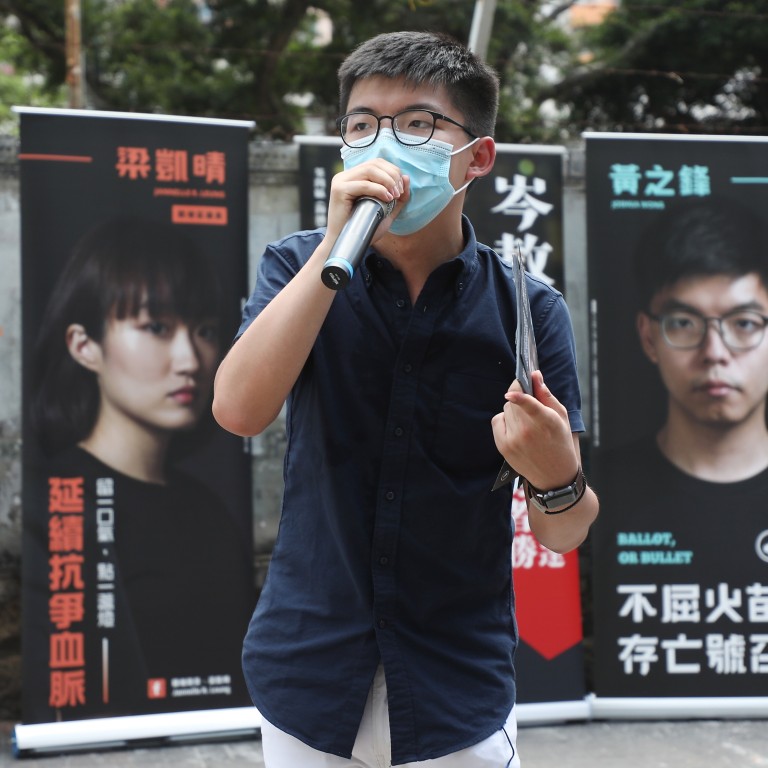
Hong Kong elections: tougher action expected from Beijing against opposition camp after frontline activists’ win at primary
- Analysts warn radicalisation and narrowing of city’s political spectrum could prompt more hardline approach from central government, while rivals feel this could work against their camp in coming Legco polls
- Traditional opposition parties meanwhile say they believe in a silent, conservative majority among supporters who would still rather pursue livelihood issues and policies
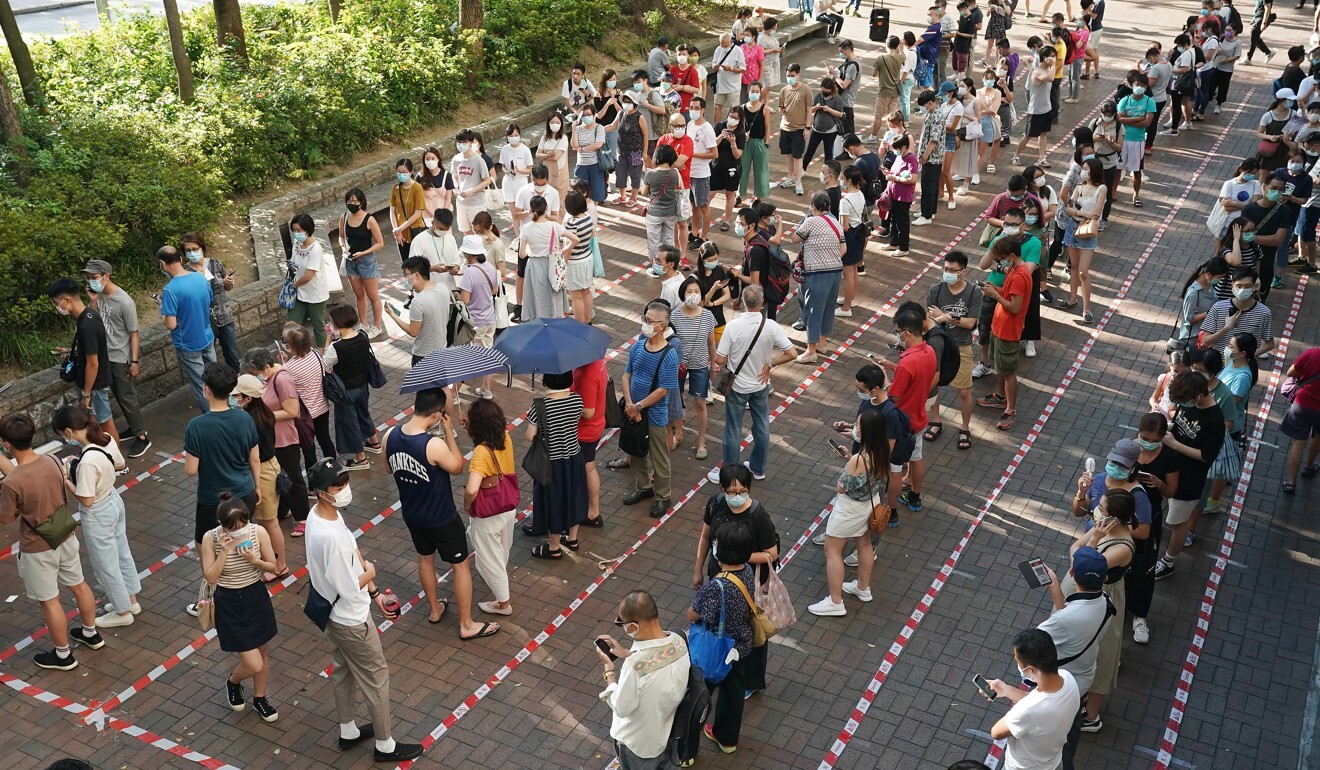
In the eyes of voters, the candidates’ spirit of resistance overrides other traditional elements like policy platforms, as well as academic and professional backgrounds
“The victory of activists in the primary implies the continuation of the spirit of our resistance against China’s growing curbs over Hong Kong’s freedoms,” Wong said. “In the eyes of voters, the candidates’ spirit of resistance overrides other traditional elements like policy platforms, as well as academic and professional backgrounds.”
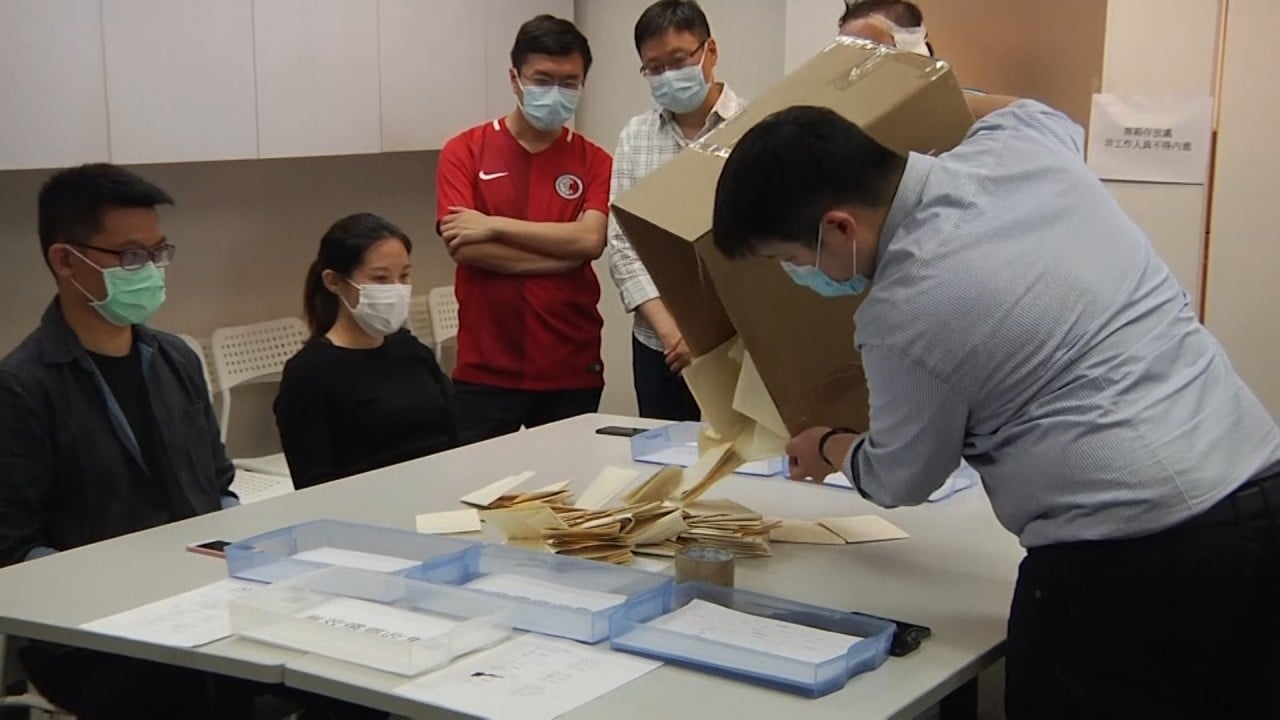
02:07
More than 610,000 vote in Hong Kong’s pro-democracy opposition primary elections
But Wong also expected more political censorship and disqualification of candidates, pointing to the high-profile statements from Beijing denouncing the primary.
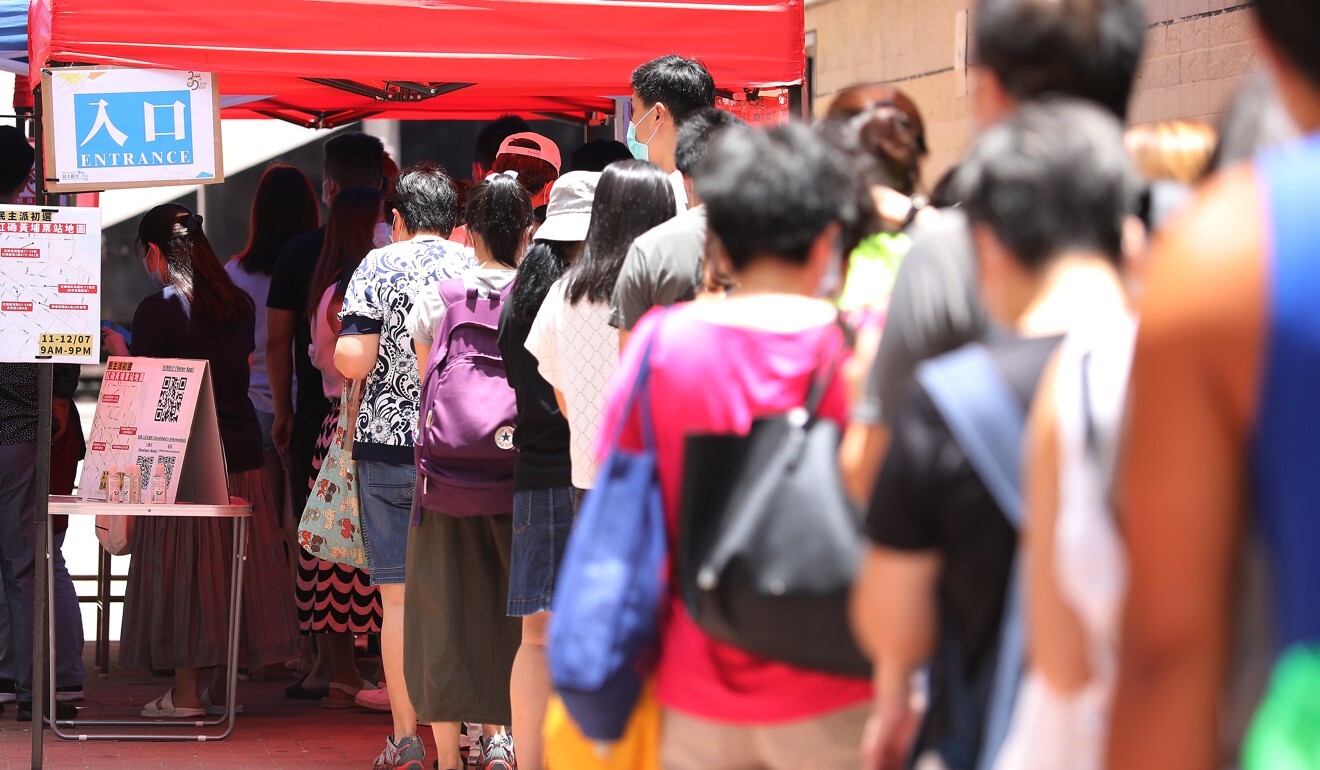
For traditional pan-democratic parties, Roy Kwong Chun-yu and Ted Hui Chi-fung – both from the Democratic Party and who were frequently seen on protest front lines – emerged as the biggest winners in their constituencies. But their veteran colleagues in the legislature, James To Kun-sun and party chairman Wu Chi-wai, almost lost in the primary, while Helena Wong Pik-wan, another incumbent lawmaker, was booted out in Kowloon West.
Former lawmaker “Long Hair” Leung Kwok-hung of the League of Social Democrats, and Civic Party’s Lee Yue-shun were also eliminated.
My image of resisting the regime is not distinctive enough. The previous efforts on livelihood issues were seen as insignificant in the unprecedented political tide
Helena Wong on Tuesday admitted defeat and said she would “deeply reflect” on her inadequacies. “My image of resisting the regime is not distinctive enough. The previous efforts on livelihood issues were seen as insignificant in the unprecedented political tide,” she said.
A Democrat insider said the party was not surprised by the result, as Wong had been unpopular among members for her unsatisfactory performance, and gave assurance that they were not worried about being marginalised.
Beijing accuses Occupy leader of breaking national security law with primary poll
A core member of the party said: “The results did not reflect voices of some voters who support a more peaceful way of resistance, as they did not cast their vote in the primary.
“We will not become more radicalised because of this blow.”
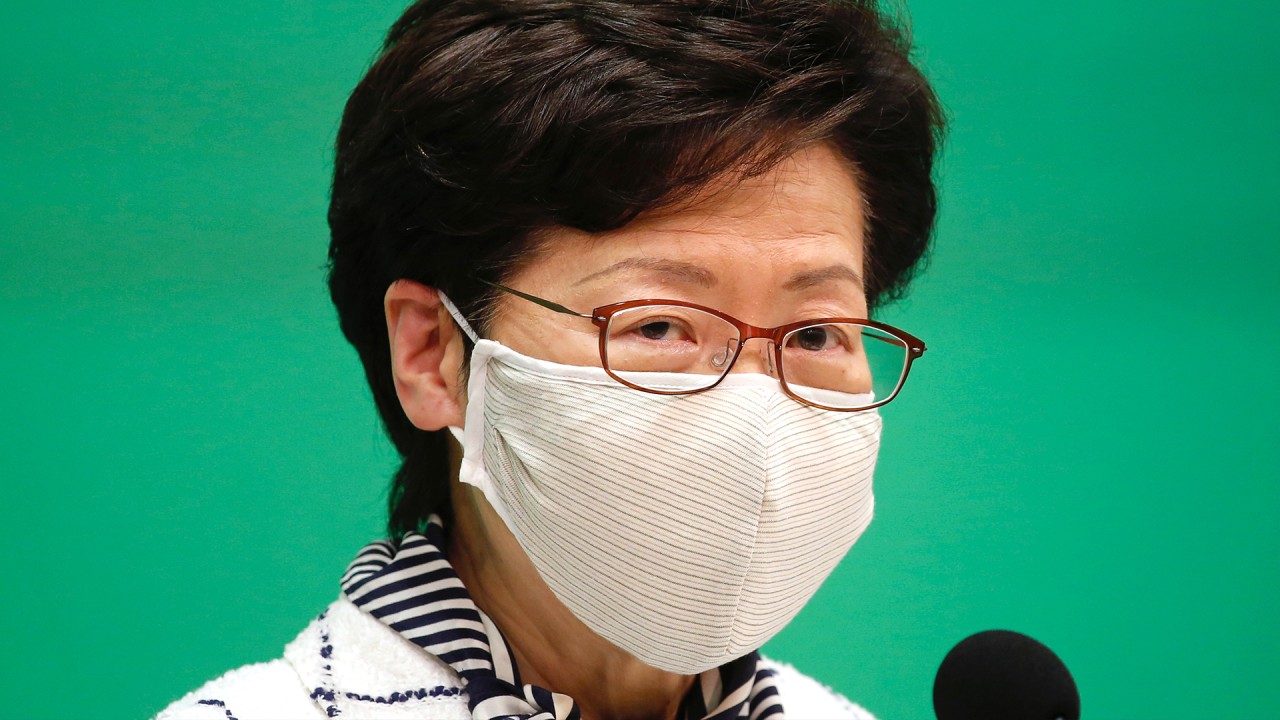
01:59
Hong Kong leader Carrie Lam says primary election might have violated national security law
The shift in voter preference was also reflected in the defeat of pan-democrats from parties that focused on livelihood issues, including Labour Party’s Carol Ng Man-yee, who sought to improve workers’ rights, and two candidates from the Hong Kong Association for Democracy and People’s Livelihood, who had years of experiences in serving the grass roots.
“Defeat could be a disastrous blow to the small parties, and this further narrows the city’s political spectrum,” said Ivan Choy Chi-keung, a political scientist from Chinese University.
But analysts also feared that the radicalisation and narrowing of the political spectrum would prompt Beijing to adopt a more hardline approach towards the opposition by banning them from running in the race. A number of localist candidates had been disqualified from entering different elections over the past years on the grounds of their political stance.

Veteran China watcher Johnny Lau Yui-siu said Beijing’s strategies could be seen in recent strongly worded statements by state agencies and local authorities against the opposition camp.
“They might see the high turnout as a result of mobilisation of foreign forces and then denounce the primary as a collusion plot that threatens China’s stability,” he said.
“They are now planting the seeds for concrete action in future to bar candidates.”
Traditional opposition parties, localists face off as more than 610,000 residents vote
Pro-establishment lawmaker Priscilla Leung Mei-fun, a member of the Basic Law Committee, on Tuesday called on the authorities to investigate candidates who vowed to paralyse the legislature, saying this would trigger a “a serious constitutional crisis”.
She also said she received complaints from residents for being “misled” in the primary.
“The pro-democracy camp’s mobilisation in the campaign had misled residents into believing it was the official election,” she said, adding she would refer the complaints to authorities.

05:50
What you should know about China's new national security law for Hong Kong
But Lau warned that mass disqualification without reasonable justification could trigger a public backlash.
A veteran member of the pro-establishment camp also echoed such concerns, pointing out that a hardline stance from Beijing would not help his bloc in retaining the majority in the legislature.
Democratic Party’s To, striking an upbeat note, said he did not see remarks of the two offices as substantial threats that would lead to the mass disqualification of candidates.
“[The two offices’] criticisms only show concern that we could capture the majority in the legislature,” he said.
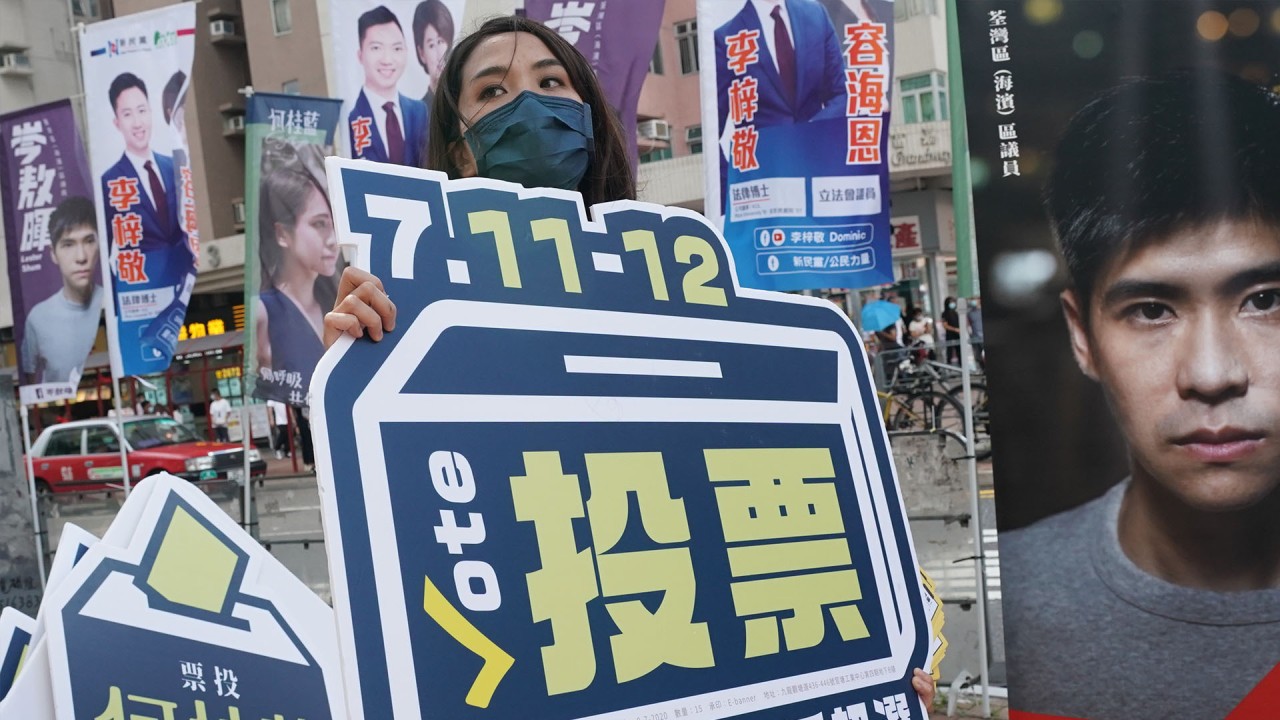
01:19
Hong Kong opposition camp holds primary to select election candidates
While suggesting the huge turnout for the primary had shored up morale for the opposition, political scientist Edmund Cheng Wai, of City University, said there were still enormous obstacles ahead for the bloc in the coming elections.
He questioned whether such a line-up that focused on a campaign to vote down government proposals would provide a spectrum wide enough to absorb conservative voters from the opposition camp.
“There is a silent group of voters who hope pan-democrats continue to perform their duties to scrutinise bills and advocate policy issues,” he said.

Meanwhile, the leading pro-establishment party, the Democratic Alliance for the Betterment and Progress of Hong Kong (DAB), announced on Tuesday it would field 55 candidates under 12 teams for the Legco polls.
Eight of the party’s 13 incumbent legislators are seeking another term, including party chairwoman Starry Lee Wai-king, who will lead a team to contest the so-called superseats. Five others have opted not to run: Ann Chiang Lai-wan, Wong Ting-kwong, Wilson Or Chong-shing, Edward Lau Kwok-fan, and Leung Che-cheung.
Among the new faces, Kennedy Wong Ying-ho, a local delegate to the Chinese People’s Political Consultative Conference and a standing committee member of the Chinese General Chamber of Commerce of Hong Kong, will contest the functional constituency of import and export, in hopes of succeeding Wong Ting-kwong.
Lee declined to comment on the results of the primary, but said it had no impact on DAB’s election strategies. She also declined to address the legality of the event, but said: “The opposition camp tries to control Legco and force Beijing and the city’s government to bow to their demands by paralysing council operations. We all know that.
Additional reporting by Ng Kang-chung

